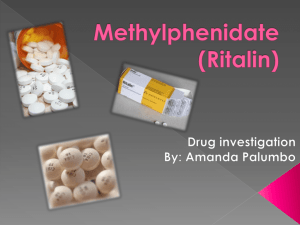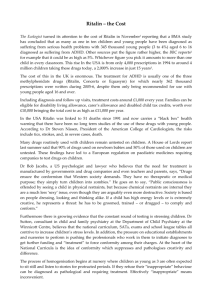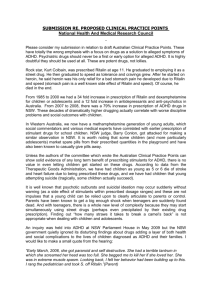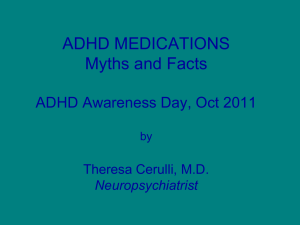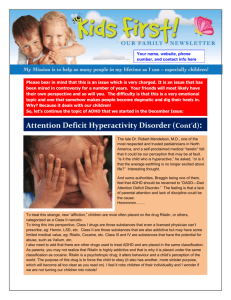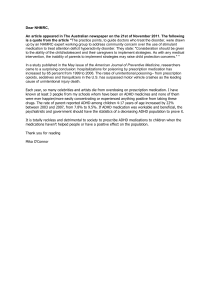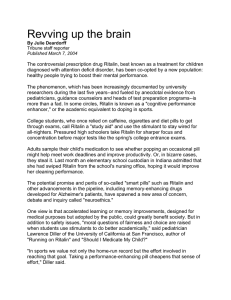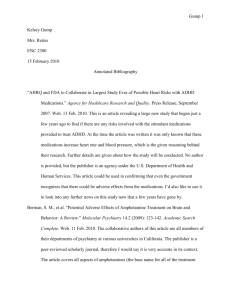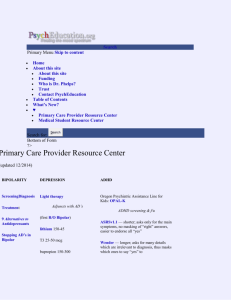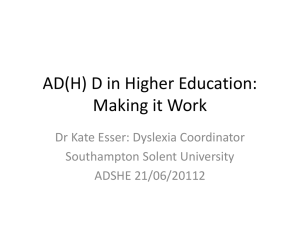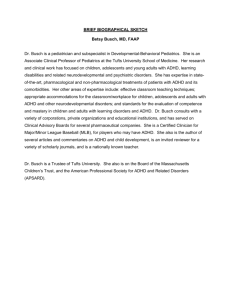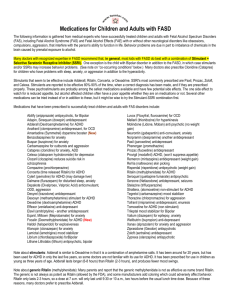Ritalin Debate: Are we over
advertisement
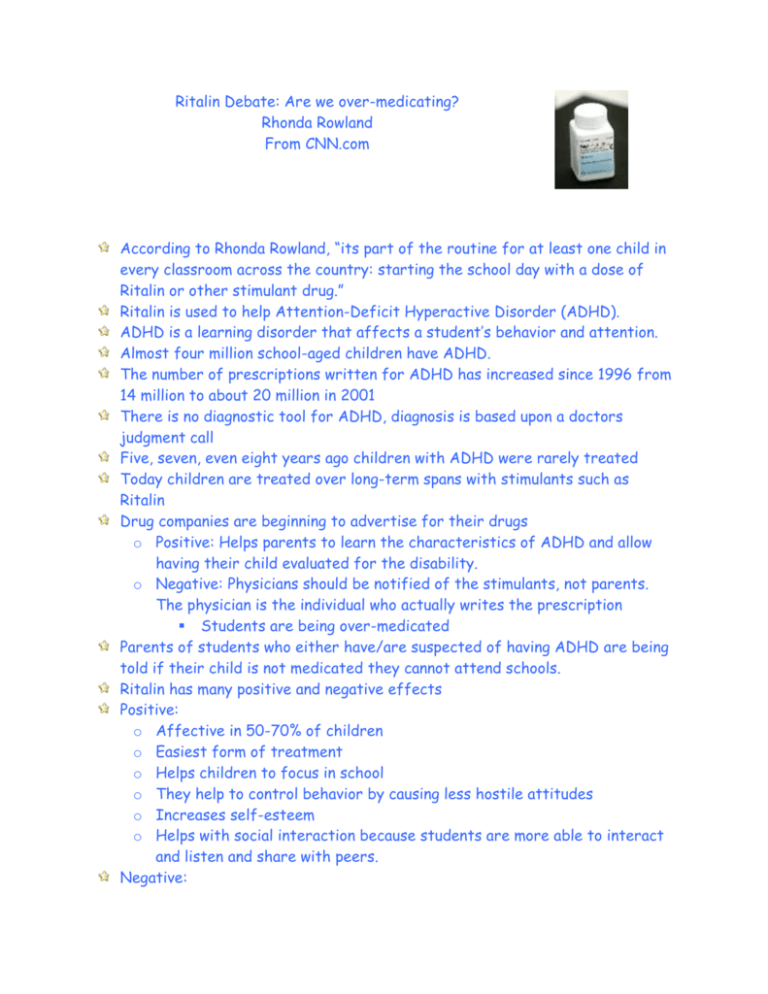
Ritalin Debate: Are we over-medicating? Rhonda Rowland From CNN.com According to Rhonda Rowland, “its part of the routine for at least one child in every classroom across the country: starting the school day with a dose of Ritalin or other stimulant drug.” Ritalin is used to help Attention-Deficit Hyperactive Disorder (ADHD). ADHD is a learning disorder that affects a student’s behavior and attention. Almost four million school-aged children have ADHD. The number of prescriptions written for ADHD has increased since 1996 from 14 million to about 20 million in 2001 There is no diagnostic tool for ADHD, diagnosis is based upon a doctors judgment call Five, seven, even eight years ago children with ADHD were rarely treated Today children are treated over long-term spans with stimulants such as Ritalin Drug companies are beginning to advertise for their drugs o Positive: Helps parents to learn the characteristics of ADHD and allow having their child evaluated for the disability. o Negative: Physicians should be notified of the stimulants, not parents. The physician is the individual who actually writes the prescription Students are being over-medicated Parents of students who either have/are suspected of having ADHD are being told if their child is not medicated they cannot attend schools. Ritalin has many positive and negative effects Positive: o Affective in 50-70% of children o Easiest form of treatment o Helps children to focus in school o They help to control behavior by causing less hostile attitudes o Increases self-esteem o Helps with social interaction because students are more able to interact and listen and share with peers. Negative: o People have began to use Ritalin as a form of drug in which they snort to get high o Some people also get addicted to the medication o The effects wear off after several hours o There are many side-effects to Ritalin including: o Insomnia and nervousness o Loss of appetite o Irritability o Stomach Aches o Dry Mouth o Blurry Vision o Nausea o Dizziness Drowsiness o Tics o Hypersensitivity o Anorexia o Heart Palpitations o Changes in pulse and Blood Pressure o Cardiac Arrhythmia o Anemia o Scalp hair loss o Psychosis These are rare, but have been diagnose from use with Ritalin: o Abnormal liver function o Cerebral arthritis o Leucopenia o Death Ritalin has many positive aspects and many negative aspects Students with Tourette’s disorder and tics are not advised to take the medication Many children today are being given medications Without having an exact way to diagnose ADHD how are we sure that the medicine is treating the right disorder? Drugs such as Ritalin change the way in which students who use it feel, and think when they are on the drug Ritalin has led to increased academic performance for children It helps students with ADHD to focus on the task and complete it Medication is the most effective treatment for symptoms of ADHD such as hyperactivity, inattention, and impulses which affects 75-80% of all students Ritalin is effective on students who truly show severe symptoms not for students who are viewed as problem students and exude bad behavior Evans, K. (n.d.). Pros and Cons of Ritalin use to treat ADHD? In Why is Ritalin over prescribed to treat ADHD? Retrieved November 28, 2007, from http://www2.gvsu.edu/~evansk/proscons.htm Ritalin Side Effects / Abuse. (n.d.). Nutrition Health Center. Retrieved November 24, 2007, from Nutrition Health Center Web site: http://www.add-adhd-help-center.com/ritalin_side_effects.htm Rowland, R. (2001, August 29). Ritalin debate: Are We Over-medication? CNN.com. Retrieved November 28, 2007, from Cable News Network LP, LLLP. Web site: http://archives.cnn.com/2001/HEALTH/parenting/08/29/ ritalin.schools/
